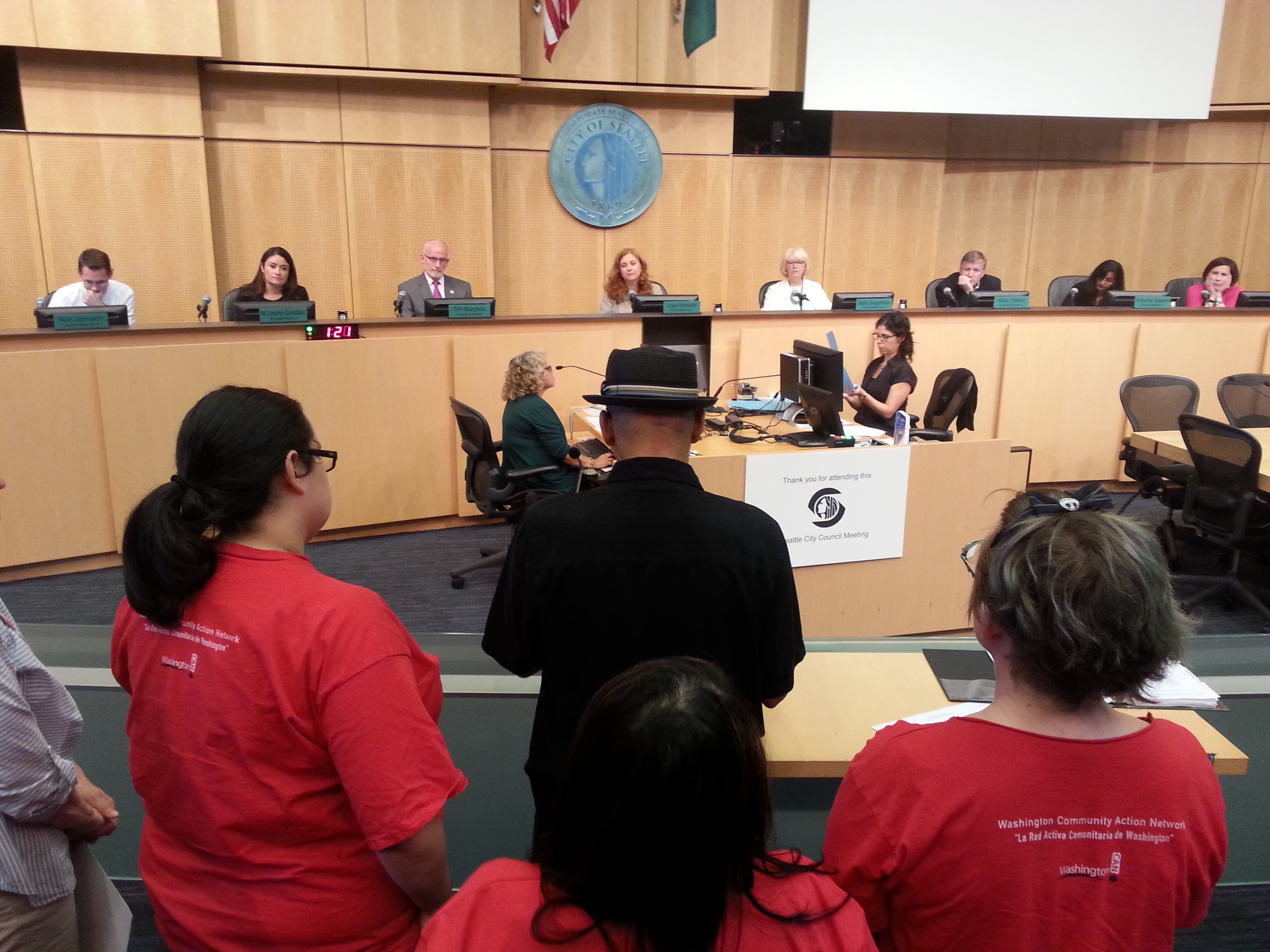Yesterday afternoon, the Seattle City Council unanimously voted to ban rent increases in Seattle properties with housing code violations.
Council chambers were mostly filled by tenants rights advocates who’d shown up to support CB 118678, colloquially known as the “Carl Haglund law” after the infamous Seattle slumlord (not to be confused with the former Finnish defense minister of the same name). In addition to freezing rents in sub-code rental units, the bill requires advanced notice of 30 days for rent increases of less than 10 percent and 60 days for 10 percent or more, and gives the Dept. of Construction and Inspections both the responsibility and the authority to enforce those 30/60 day notice requirements.
Before the vote at yesterday’s council meeting, commenter after commenter spoke in support of the bill. Speakers hailed from such left-wing groups as the Tenants Union, Socialist Alternative, Washington CAN!, the Transit Riders Union, and Standing Against Foreclosure and Eviction [SAFE]. “It’s unfortunate that the Carl Haglund law is necessary, but it is,” Emma Jean Williams told the council. “Please make [this vote] unanimous.”
They did. (Bruce Harrell was absent.) But Kshama Sawant, the bill’s primary sponsor, cautioned that it was but a small victory in the larger quest to protect renters. “This bill…will only give tenants a tool to fight with,” she said. “It will require tenants to keep organizing.” Sawant and several commenters called for the state to give Seattle the authority to institute rent regulations for all buildings, not just sub-code ones. Last year, the council passed a resolution calling for the same.
Momentum toward the law started building last year after tenants at one of Haglund’s south Seattle properties protested that their rents about to nearly double, despite serious building code violations that had not yet been fixed. (H/t to The Stranger and Real Change for their early coverage.) “He increased our rent but didn’t fix anything,” renter Samira Meshalla told Real Change. “There are small animals in the apartment, we don’t have a heater, the oven doesn’t work. It’s not healthy.”
In response, council lefties Kshama Sawant and Nick Licata (now succeeded by his former staffer Lisa Herbold) called for the legislation that yesterday became law. We asked Licata for his reaction to the bill’s passage. “At the very beginning, I had a feeling this was a winner,” he says, giving credit to Sawant and especially to the Tenants Union for “getting the ball rolling.”
“What I find interesting about the legislation that was passed,” Licata says, “is initially there was almost no support for it. But it’s so logical that you shouldn’t be raising rents on units that…don’t meet standards. [This] was one of those rare instances where logic overcame money. It would be too absurd to argue that people should not just live in substandard housing but then [find their rent] increase[d].”
That logic won over both the council as well as Mayor Ed Murray, who branded it as part of his HALA housing strategy in a letter to council endorsing the bill: “[M]y policy staff worked together with Councilmember Kshama Sawant to develop [this] legislation.”








